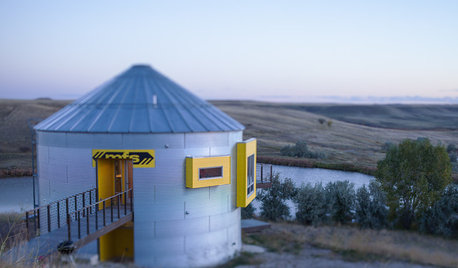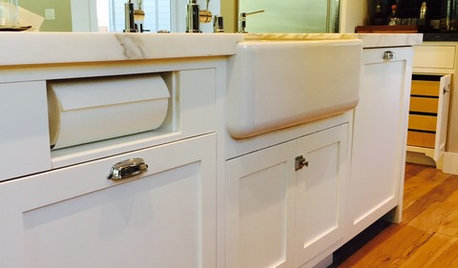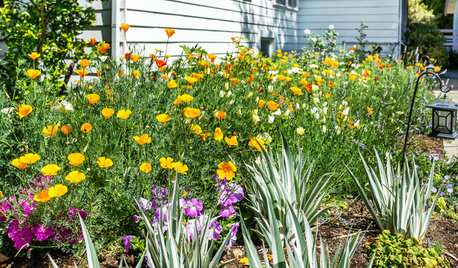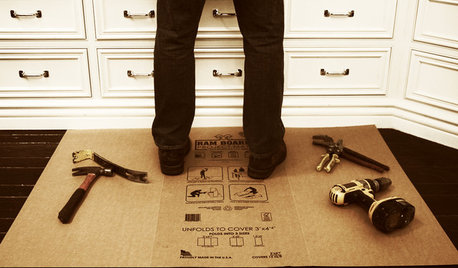watering/rinsing out your bin?
susanfromhawaii
15 years ago
Related Stories

GARDENING GUIDESHouzz TV: Make a Worm Bin for Rich Soil and Happy Plants
A worm-powered compost bin that can fit under a sink turns food scraps into a powerful amendment for your garden. Here’s how to make one
Full Story
HOUZZ TOURSHouzz Tour: Prairie Grain Bin Turned Bucolic Retirement Home
An agrarian structure and a big dream combine in this one-of-a-kind home that celebrates 250 acres of Montana grasslands
Full Story
SAVING WATER11 Ways to Save Water at Home
Whether you live in a drought-stricken area or just want to help preserve a precious resource, here are things you can do to use less water
Full Story
HOUSEKEEPINGHow to Clean Your Fridge, Inside and Out
Keep your refrigerator clean and fresh, while you gain storage space and lose those ‘UFOs’
Full Story
KITCHEN DESIGNKitchen Details: Out-of-Sight Paper Towel Holder
See how some homeowners are clearing the counter of clutter while keeping this necessity close at hand
Full Story
SAVING WATERXeriscape Gardens: How to Get a Beautiful Landscape With Less Water
Conserve water and make gardening much easier with the xeriscape approach’s 7 principles
Full Story
LANDSCAPE DESIGN10 Ideas for a Creative, Water-Conscious Yard
Check out these tips for a great-looking outdoor area that needs less water
Full Story
HEALTHY HOMEBath Design: Renew Body and Mind With Colorful Light
Take one tired, stressed-out self. Rinse in a shower bathed in blue light (or any color you like). Repeat
Full Story
BATHROOM DESIGNOut With the Old Tile: 8 Steps to Prep for Demolition
This isn't a light DIY project: You'll need heavy-duty tools and plenty of protection for your home and yourself
Full Story
HEALTHY HOMEHow to Choose a Home Water Filtering System
Learn which water purification method is best for your house, from pitchers to whole-house setups
Full StoryMore Discussions






Jasdip
mbetts
Related Professionals
Surprise Landscape Architects & Landscape Designers · Maple Heights Landscape Architects & Landscape Designers · San Juan Landscape Architects & Landscape Designers · Goodyear Landscape Contractors · East Haven Landscape Contractors · Englewood Landscape Contractors · Vineyard Landscape Contractors · Duncanville General Contractors · Makakilo General Contractors · Markham General Contractors · Millbrae General Contractors · Olney General Contractors · Sulphur General Contractors · Union Hill-Novelty Hill General Contractors · Waianae General ContractorssusanfromhawaiiOriginal Author
squeeze
jenv14
susanfromhawaiiOriginal Author
jtr100
Jasdip
wormnelly
susanfromhawaiiOriginal Author
Jasdip
11otis
Jasdip
susanfromhawaiiOriginal Author
wormnelly
susanfromhawaiiOriginal Author